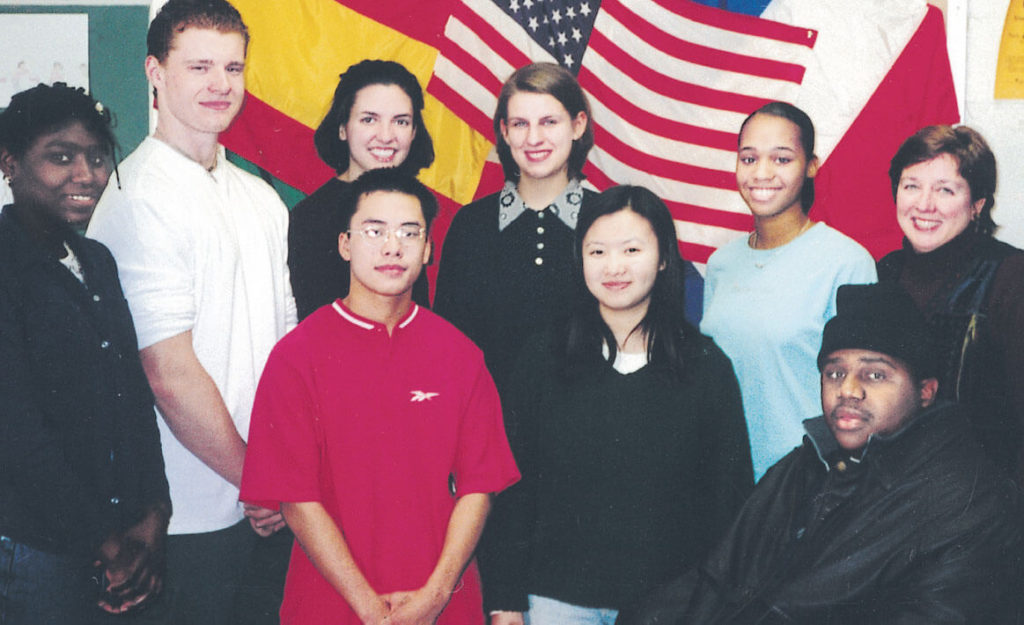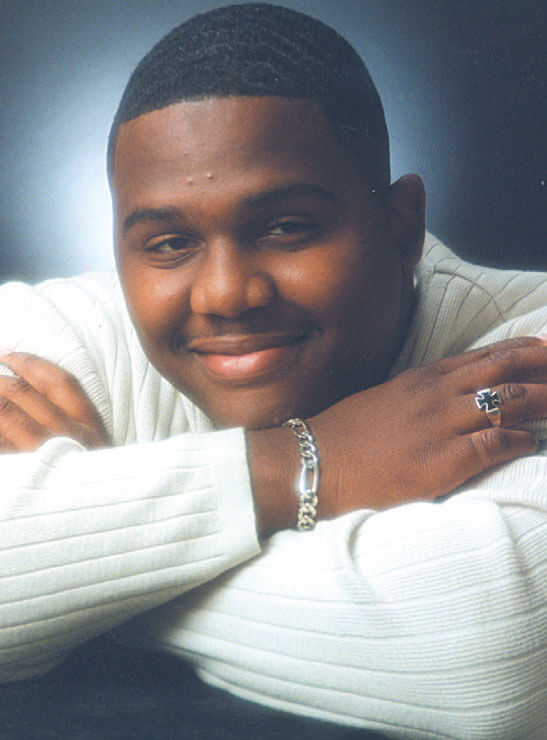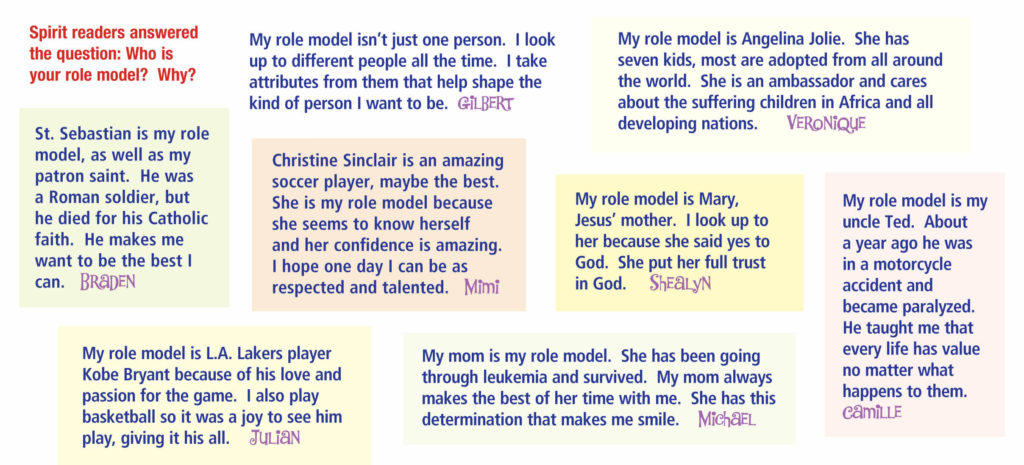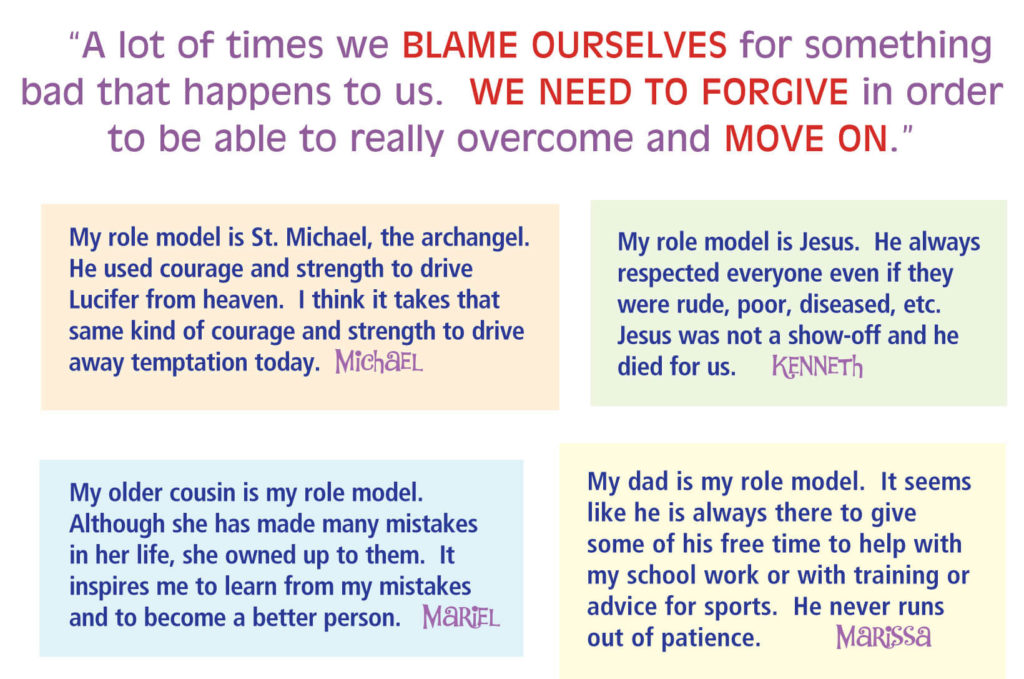by Connie Fourré

The first time I saw “our” Bobby Brown was in August as I was heading into school for teacher workshops. I looked over at the sophomore football team out on the field practicing and saw an unfamiliar figure on the sidelines. Bobby was there in his wheelchair, yelling encouragement to the players as they ran through their drills.
I learned that Bobby was a new student at our school. A gifted athlete known for his enthusiasm and magnetic personality, he was supposed to be out on that field with the other players.
A fateful day a month earlier had changed all that.
Bobby and his sisters LaVonne and RaiChel were out together when they were caught in the crossfire of a driveby shooting. LaVonne was shot in the legs, Bobby in the spine. RaiChel watched helplessly as her sister and brother’s lives changed forever.
I have never seen our students be unkind to someone with a disability, but I know that student life can leave some disabled students on the margins. Not Bobby. Whenever I saw him in the hall, three or four students usually surrounded his wheelchair, talking and laughing.
Bobby and his sister RaiChel quickly established themselves as part of our school community. Bobby was always himself — interested in people, his sense of humor quickly setting everyone at ease.
When Bobby spoke of his injury, there was no sense of awkwardness. He neither dramatized the situation nor tried to ignore it. In class I could count on Bobby to be honest and straightforward in discussions.
One day in class he talked about resentment. To outsiders, it seemed as though he had adjusted to his new circumstances almost effortlessly. On the contrary, Bobby said, “I struggle with resentment every day. I feel as though I’ve been robbed of the life I was supposed to have.”
Bobby wasn’t born a hero; he became a hero one day and one decision at a time. He notes that victims of traumatic events often need to forgive themselves as well as the perpetrator. “A lot of times we blame ourselves for something bad that happens to us. We need to forgive in order to be able to really overcome and move on.”
Bobby’s dreams of being an athlete changed on that July day, but his love for athletics did not. The first summer after the shooting, he and his family channeled their grief into founding an outreach program for kids.

Beyond the Court is a summer basketball program for center-city children, which teaches gun-violence prevention right along with free throws and teamwork. The first year the Brown family prepared for 200 children to attend the free clinic; 390 showed up. The clinic has been held every year since.
The Bobby Brown Violence Prevention Institute has expanded to include other programs. With the theme of “Each One Reach One,” each program rests on faith in Jesus.
“You can’t heal without God. I believe that through God we are all connected. With God’s help, we can get along and eliminate a lot of issues that divide us. We sneak that message in there,” Bobby says with a smile.
The Institute sponsors an annual talent showcase and dance titled “My Brother’s Keeper.” Young people get the chance to show their positive attributes to the community and see themselves in a new way. Five hundred people attend this annual event.
All programs are free and open to anyone who wants to come. The Brown family works tirelessly to find funding and sponsors to keep the programs going. “We want everything to be first-class,” says Bobby. “This may be the only meal a little kid has that day. We want them to know they are worth first-class treatment.”
On most days, Bobby was a student at our school pretty much like everybody else. He wasn’t always upbeat. Tragedies such as Bobby’s draw attention and support in the beginning, but the everyday struggles can be tough. For Bobby something as simple as switching books at a locker takes longer — every single day, every single time.
Sometimes Bobby got frustrated or down. Sometimes he was late for class or missed altogether because he needed time to rest. In the toughest moments, his faith sustained him.
“Too often as human beings we get caught up in our situation,” says Bobby. “Whether it’s a parent’s divorce, or lack of money, or feeling ugly, or in my case the shooting. We see our circumstances as four walls 30 feet high, so high we can’t see out. We miss out on what God has planned for us, and we miss out on our future.
“When I got shot, my whole life changed. But circumstances are just an event, a moment in time. Instead of feeling boxed in by 30-foot walls, that event can be a wall just two feet high.
“We can continue to see God’s plan, the goals and blessings that are there for us. Circumstances aren’t eternal, they come to an end. Whatever the outward limits, they are just a moment we are going through.
“That doesn’t mean we don’t have feelings about what happens to us. The shooting and its effects hurt — and it still hurts. But I’m still going to live my life according to God’s plan.”
Bobby graduated from high school and went on to Augsburg College, where he became president of the student body. He laughs when recalling his final address to the Board of Regents. “Past student body presidents maybe were intimidated by the group, but I told it like it is.” Bobby used his influence to advocate for even greater sensitivity for people with disabilities on his college campus.
Bobby’s courageous response to the events in his life has drawn media attention. On the tenth anniversary of the shooting, the mayor of Minneapolis officially proclaimed July 15 as Bobby Brown Violence Prevention Day. The event powerfully impacted the family. Bobby says, “It felt like we reclaimed that day — it’s something we own now. We are no longer victims. We’re still here, and we can do all things in Christ. That’s not just a cliché, it’s reality.”
Bobby graduated with his girlfriend Andrea and his family at his side. Of Andrea, he says, “She’s the one. But my mom always taught me you take care of your family, and I need a profession to make sure I can do that.” He’s beginning a Master’s program in psychology, and hopes to go on to a Ph.D. “I’ve always been in the helping field, and I think this is the way I can do the most good with my life. I want to help people who have been through traumatic experiences — to help them know there is life on the other side.”
Bobby’s faith includes a belief in miracles. He and his family firmly believe he will walk again one day. They are optimistic that God’s grace and new discoveries in modern medicine may hold the secret to healing. In the meantime, nothing stops his spirit.


